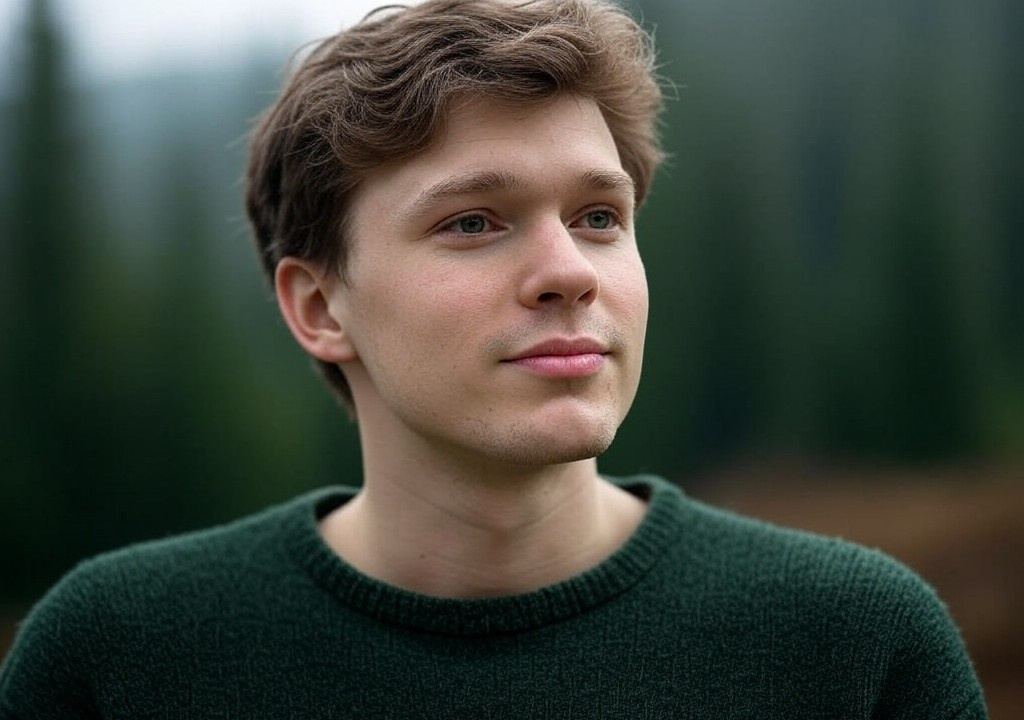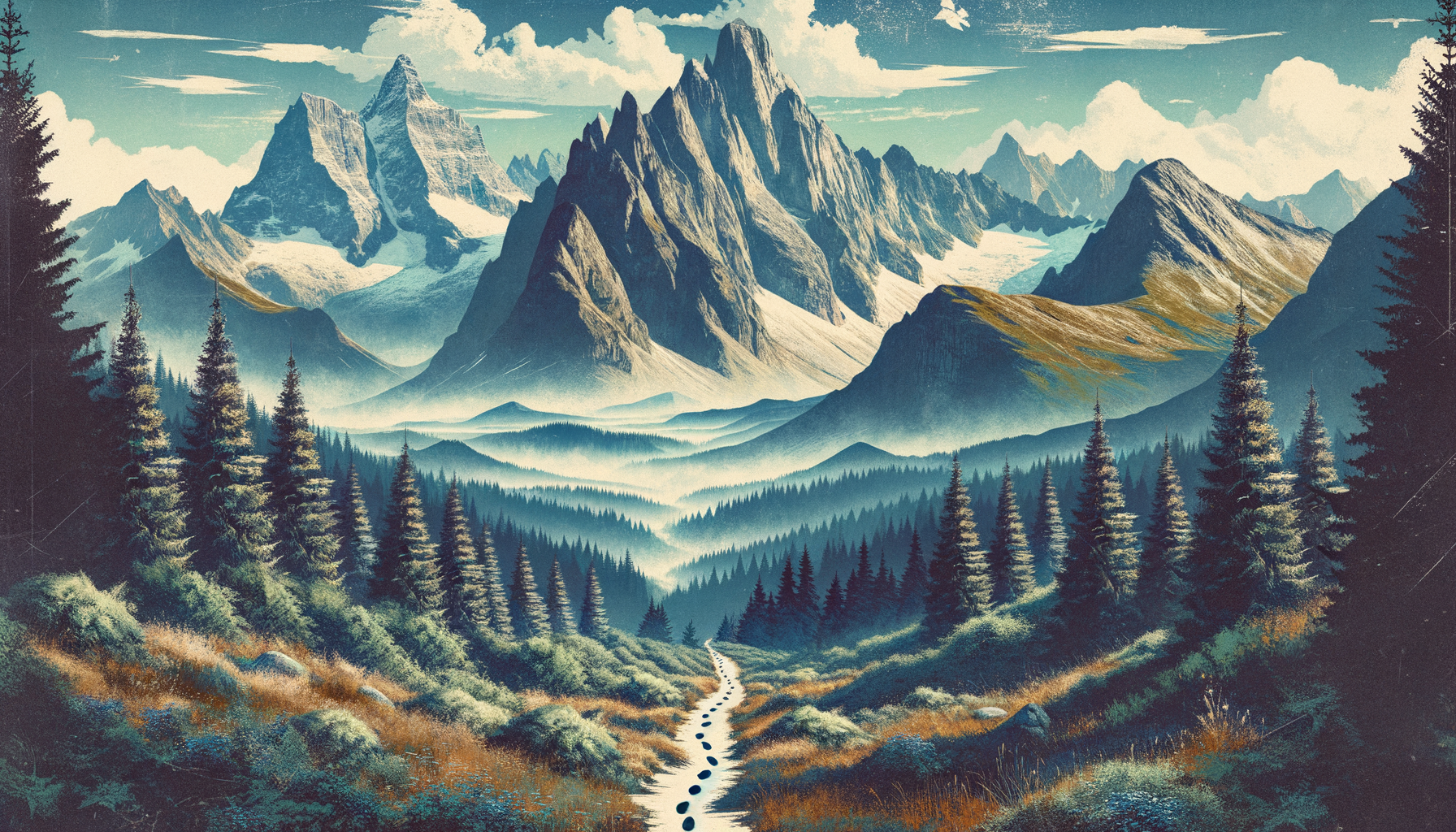I’m not sure anyone wakes up one morning and thinks, “Yes, this will be the day I discover my greatest passion!” For me, it was more like stumbling into it, the way you might accidentally swipe right on someone who turns out to be your soulmate. One moment, I was a kid more concerned about catching frogs in the creek behind my house. The next, I was standing in the heart of the Rockies, chest-deep in awe for the environment and a growing sense of responsibility to protect it. My love affair with the natural world began gradually, but unlike some whirlwind romances, this one stuck.
Let me take you back to where it all began.
Love at First Hike (Sort Of)
Growing up in Boulder, Colorado, the outdoors was my playground, my therapist, and occasionally my partner in crime. My parents, avid environmental activists, lived by the mantra: “Leave it better than you found it.” So while other kids were learning to ride bikes, I was learning to leave no trace. Our weekends weren’t spent at theme parks or malls—they were spent trekking through the Flatirons and camping under the stars.
I couldn’t fully appreciate it then, of course. At 12, I was far more interested in whether I could get a cell signal at the campground than in the social dynamics of a family of marmots. My dad once had to bribe me with Reese’s Cups to join a trail clean-up crew. But even in my early grumbles about muddy boots and mosquito bites, the seeds of something bigger were being planted.
Fast-forward a few years to high school, when I joined my outdoor education class on a weeklong backcountry trip. It wasn’t just a hike—it was a rite of passage. Somewhere between filtering my own drinking water and feeling the air thin as we summited a 12,000-foot peak, I felt it: that electric pull. I couldn’t help but see the landscape not just as beautiful but fragile. And as anyone who’s ever fallen in love knows, recognizing the fragility of something makes you want to fight for it all the more.
Turning Passion Into a Pursuit
College solidified what those formative experiences had hinted at. I enrolled in the University of Colorado Boulder to study Environmental Policy, hoping to understand the systems that shaped our relationship with the planet. It wasn’t as glamorous or romantic as it might sound. Picture 19-year-old me, neck-deep in textbooks on water rights disputes, sobering data on climate change, and professors who used the word “anthropogenic” like it was a second comma.
But interwoven into these studies was something I hadn’t expected—storytelling. I stumbled into a creative writing class as an elective and found myself weaving narratives that intertwined my own experiences with broader environmental ideas. I wrote about the fish kill I witnessed during a hot summer when the creek dried up to a trickle. About my dad’s calloused hands after years of planting trees. About the despair I felt watching wildfires creep closer and closer to Boulder County.
What started out as a class assignment became a compass for my career—or, perhaps more accurately, my calling. Because here’s the thing: Passion isn’t just about loving something; it’s about finding a way to make others care about it too. Writing became my bridge between personal conviction and collective action.
Lessons from Love and Landscapes
If falling in love with the environment taught me anything, it’s that the process is eerily similar to dating. Both start with intrigue—maybe even infatuation—but they thrash you around a bit before settling into something real. The environment and I have had our fair share of arguments. Sometimes it’s too much; sometimes, I question if my efforts even matter. (Much like anyone who’s accidentally texted a crush “haha k” and spent hours spiraling.)
But like a long-term relationship, passion demands care, attention, and an ability to show up even when it’s hard. It asks you to work for it. And in doing that work, you find more clarity about who you are and what you stand for.
Here are the three big takeaways I’ve learned about cultivating—not just romantic love—but any kind of passion:
-
Stay Curious.
Love doesn’t thrive on autopilot, and neither does passion. Whether it’s a relationship or a cause, you have to keep asking questions. Why does this matter? What’s changing? How can I contribute? For me, it means reading up on public land policies or documenting erosion patterns. For you, it could mean diving deeper into your partner’s interests or exploring a hobby you’ve always been curious about. Never stop learning—it keeps the fire alive. -
Find Your “Why.”
Passion without purpose eventually runs dry. It’s like going on a date where all you’re doing is making small talk—fine for a bit but ultimately unfulfilling. My “why” is simple: I want future generations to experience the same sense of wonder I felt looking out over the Rockies as a teenager. Knowing your driving purpose keeps you grounded through inevitable challenges. -
Celebrate the Wins.
Whether it’s an anniversary or the passing of a crucial environmental bill, take time to acknowledge what’s working. Achievements, big or small, are the fuel that keeps the engine running. For me, every essay or article I write that inspires someone to rethink their relationship with the planet feels like a win.
Beyond the Green Horizon
Today, my passion isn’t just some personal love affair with nature—it’s part of who I am. It’s the lens through which I see the world and, frankly, how I’ve operated in my own relationships. You want to understand what someone cares about? Take a walk with them. They might point out restaurant options or landmarks; I’ll point out the invasive cheatgrass and point out the ways the city could improve its parks. Romantic, right? (Although let’s be real—if you’re deeply into sustainability talk, consider this flirting.)
Here’s the truth about passions: they evolve, and they ask you to evolve with them. I’m no longer the starry-eyed kid thrilled to catch a glimpse of elk in Rocky Mountain National Park. These days, I’m more focused on protecting their habitat, even if it just means donating to conservation organizations or rallying for policy changes. The passion hasn’t faded—it’s deepened.
So wherever you are in the process—still seeking your spark or nurturing a lifelong flame—lean into it. Treat passion the way you’d treat a great love: nurture it, fight for it, and never take it for granted. Or, as my dad would always say during our hikes, "Keep putting one foot in front of the other, and you’ll always find your way."




















